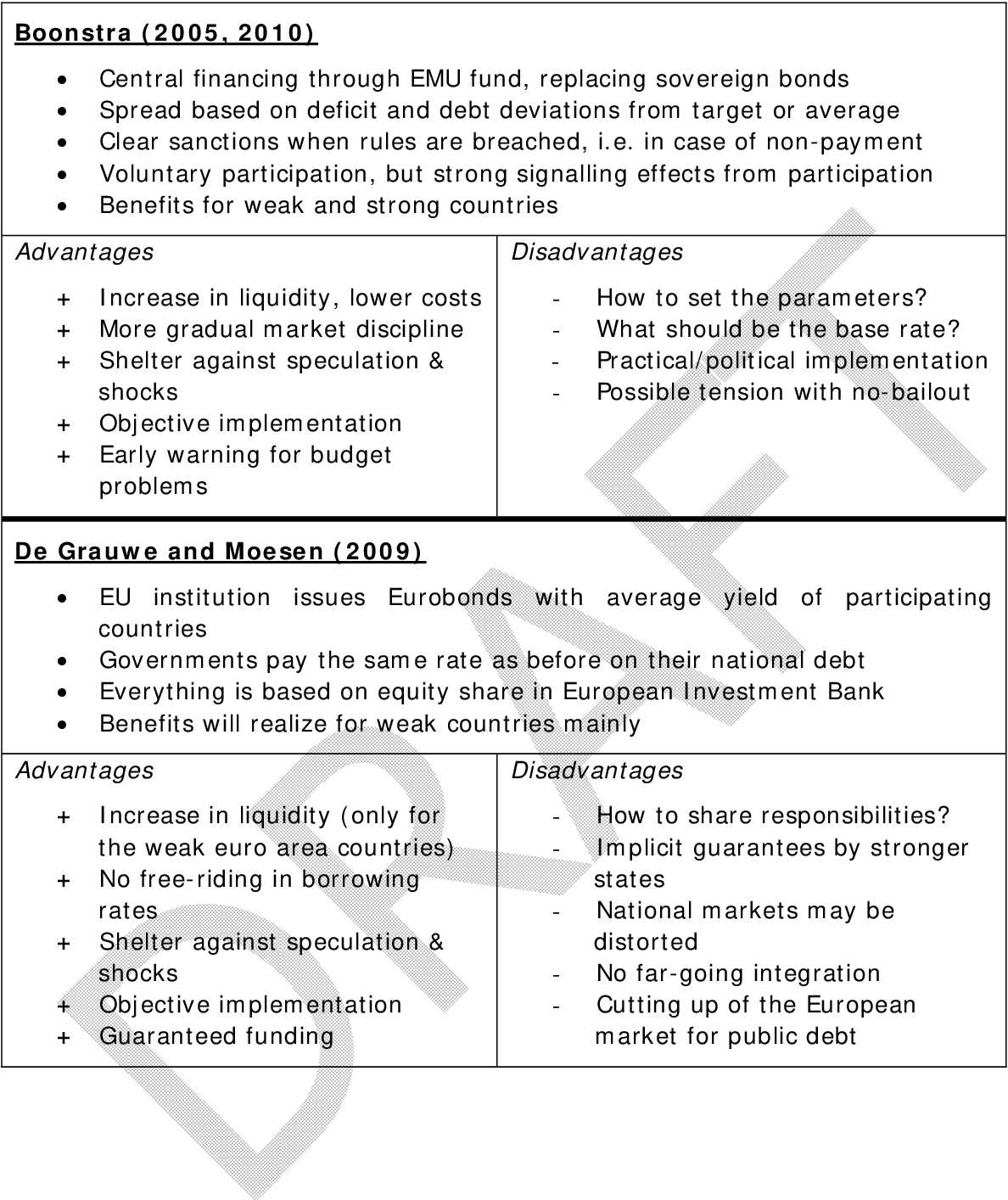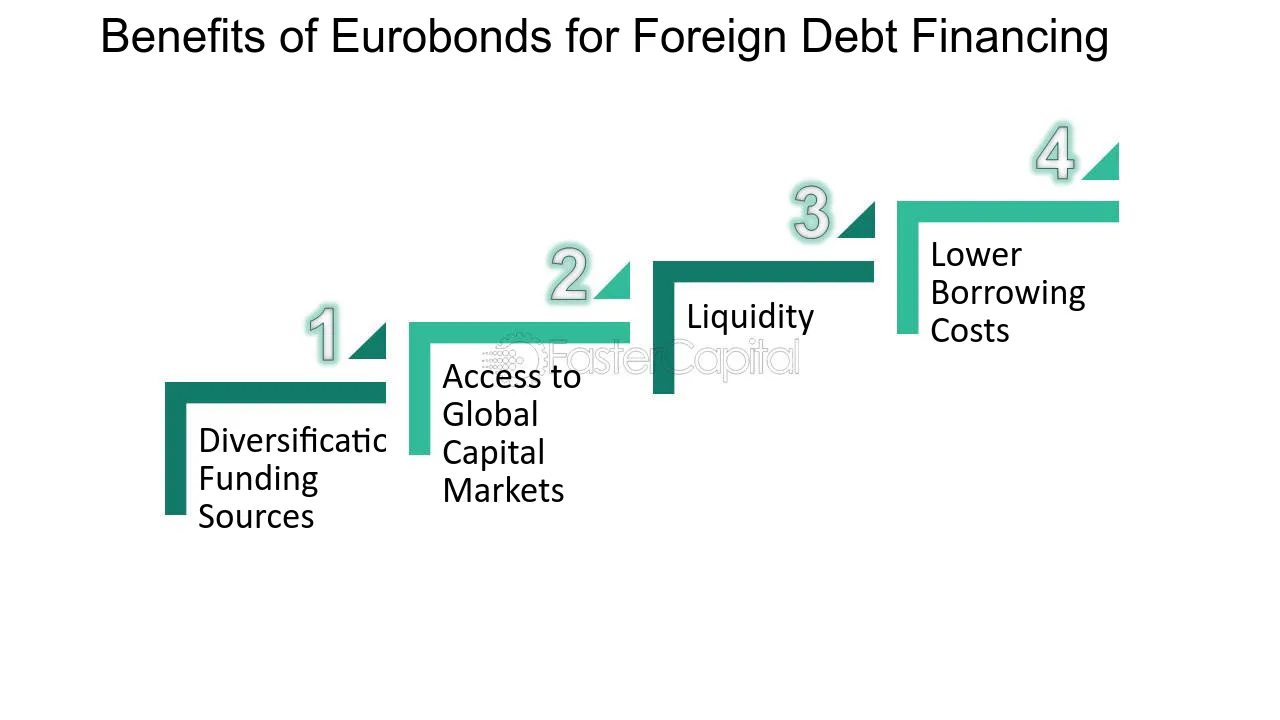Eurobond: Definition, Issuers, Pros and Cons
An Eurobond is a type of bond that is issued in a currency different from the currency of the country where it is issued. It is a popular form of international debt financing, allowing companies and governments to raise funds in foreign currencies. Eurobonds are typically issued by multinational corporations, sovereign governments, and supranational organizations.
The main advantage of Eurobonds is that they provide issuers with access to a larger pool of investors and a broader range of funding sources. By issuing bonds in multiple currencies, companies and governments can diversify their funding base and reduce their exposure to currency risk. Eurobonds also offer investors the opportunity to invest in different markets and currencies, potentially earning higher returns.
However, Eurobonds also have some drawbacks. One of the main disadvantages is that they are subject to changes in exchange rates, which can affect the value of the bond and the returns for investors. Additionally, Eurobonds may have higher transaction costs and fees compared to domestic bonds. They may also be subject to different regulatory and legal frameworks, which can add complexity and increase the risk for investors.
What is Eurobond?

Eurobond is a type of bond that is issued in a currency different from the currency of the country where it is issued. It is typically issued by multinational corporations, international organizations, and governments to raise capital in foreign markets.
Eurobonds are denominated in a currency that is different from the currency of the country where the bond is issued. For example, a Eurobond issued in the United States would be denominated in euros, even though the bond is issued in the US.
Characteristics of Eurobonds:
- Eurobonds are typically issued in large denominations, often exceeding $100,000.
- They have a fixed maturity date, usually ranging from 5 to 30 years.
- Eurobonds are usually bearer bonds, meaning that the bondholder’s identity is not recorded.
- They are traded in the international bond market, allowing investors from different countries to participate.
- Eurobonds are subject to the laws and regulations of the country where they are issued.
Advantages of Eurobonds:

- Eurobonds provide issuers with access to a larger pool of investors, increasing the potential for raising capital.
- They allow issuers to diversify their funding sources and reduce dependence on domestic markets.
- Eurobonds can be issued with different maturities and interest rates, providing flexibility for issuers.
- Investors can benefit from currency diversification and potentially higher yields compared to domestic bonds.
Disadvantages of Eurobonds:

- They may be subject to higher transaction costs and fees compared to domestic bonds.
- Eurobonds may be subject to different tax regulations and withholding taxes, depending on the country of issuance.
- Investors may face challenges in assessing the creditworthiness of issuers, as Eurobonds are not always subject to the same regulatory requirements as domestic bonds.
Eurobond Issuers
Eurobonds are issued by a variety of entities, including governments, corporations, and international organizations. Here are some of the main issuers of Eurobonds:
1. Governments:
Many governments around the world issue Eurobonds to raise capital. These bonds are typically used to fund government projects, such as infrastructure development or social welfare programs. Some examples of government Eurobond issuers include the United States, Germany, Japan, and the United Kingdom.
2. Corporations:
Corporations also issue Eurobonds as a way to raise funds for various purposes, such as expansion plans, debt refinancing, or acquisitions. These bonds are typically issued by large multinational companies with strong credit ratings. Some well-known corporate Eurobond issuers include Apple, Microsoft, and Toyota.
3. International Organizations:
Overall, Eurobonds provide a diverse range of issuers, allowing investors to choose from a wide variety of credit risks and investment opportunities. This diversity makes Eurobonds an attractive investment option for both institutional and individual investors.
Pros and Cons of Eurobonds
Eurobonds are a popular investment option for both issuers and investors. They offer several advantages, but also come with some drawbacks. Here are the pros and cons of Eurobonds:
Pros:
- Diversification: Eurobonds allow investors to diversify their portfolios by investing in different countries and currencies. This helps spread risk and can provide stability during economic downturns.
- Higher Returns: Eurobonds often offer higher yields compared to domestic bonds, attracting investors seeking better returns on their investments.
- Global Access: Eurobonds provide access to international markets, allowing investors to participate in the global economy and take advantage of opportunities in different regions.
- Tax Benefits: Eurobonds can offer tax advantages, such as lower withholding taxes or tax exemptions, depending on the jurisdiction of the issuer.
- Liquidity: Eurobonds are highly liquid, meaning they can be easily bought or sold on the secondary market, providing investors with flexibility and the ability to exit their positions quickly if needed.
Cons:

- Interest Rate Risk: Changes in interest rates can affect the value of Eurobonds, potentially leading to losses for investors.
- Default Risk: There is always a risk that the issuer of Eurobonds may default on their payments, leading to potential losses for investors.
- Higher Costs: Investing in Eurobonds may involve higher transaction costs and fees compared to domestic bonds.
Overall, Eurobonds can be a valuable addition to an investment portfolio, offering diversification, higher returns, and global access. However, investors should carefully consider the risks involved and seek professional advice before investing in Eurobonds.

Emily Bibb simplifies finance through bestselling books and articles, bridging complex concepts for everyday understanding. Engaging audiences via social media, she shares insights for financial success. Active in seminars and philanthropy, Bibb aims to create a more financially informed society, driven by her passion for empowering others.
